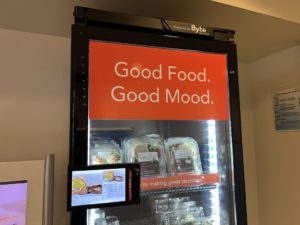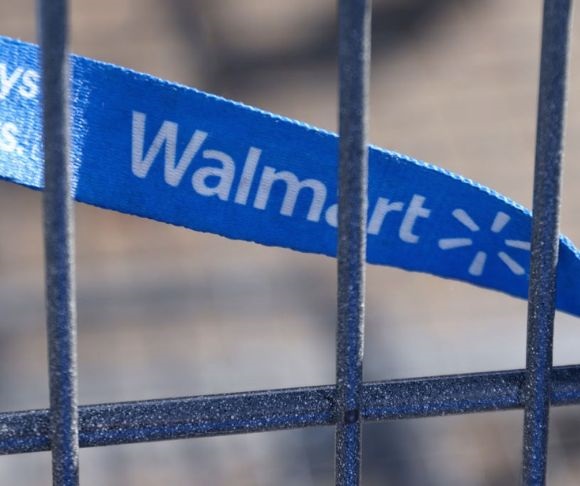Organized retail theft has been on the rise since the coronavirus pandemic, forcing corporate giants like Walgreens, CVS, and Walmart to issue a red alert of higher prices and store closures. Shoplifting numbers have accelerated amid deteriorating economic conditions, rampant price inflation, and increasingly progressive prosecutors. The trifecta of challenges concerns retailers – large and small – and they will be experimenting with a diverse array of solutions to limit the damage from looting and smash-and-grabs.
Walmart Rolling Back the Rollbacks
 Walmart CEO Doug McMillon confirmed that US locations are witnessing a notable uptick in shoplifting that could force the retail juggernaut to raise prices and shutter stores if the trend persists. “Theft is an issue. It’s higher than what it has historically been,” he told CNBC on Dec. 6. “We’ve got safety measures, security measures that we’ve put in place by store location. I think local law enforcement being staffed and being a good partner is part of that equation, and that’s normally how we approach it.”
Walmart CEO Doug McMillon confirmed that US locations are witnessing a notable uptick in shoplifting that could force the retail juggernaut to raise prices and shutter stores if the trend persists. “Theft is an issue. It’s higher than what it has historically been,” he told CNBC on Dec. 6. “We’ve got safety measures, security measures that we’ve put in place by store location. I think local law enforcement being staffed and being a good partner is part of that equation, and that’s normally how we approach it.”
McMillon blamed the rising shrink rate – an industry term to address losses caused by in-store theft, fraud, and damage – on the lax approach from prosecutors in local jurisdictions, something that could have broader consequences “if that’s not corrected over time.”
Walmart, which maintains more than 4,700 US stores, has been one of many big-box retailers to sound the alarm about organized retail theft. In its third-quarter earnings report, Target confirmed that shoplifting increased 50% year-over-year, causing more than $400 million in losses in the current fiscal year. Pharmacy chain Rite-Aid lost $5 million in the second quarter due to increased theft at its New York City locations – petty theft rates in the city have soared 42% from last year. Walgreens reported that items theft and damage in their stores spiked 40% to 50% from before the COVID-19 public health crisis.
In 2021, organized retail crime surged 26.5%, according to the National Retail Federation (NRF), costing the industry nearly $100 billion. The retail trade group estimates that retail crime costs an average of $700,000 per $1 billion in sales. In its 2021 National Retail Security Survey, NRF found that two-thirds of merchants believe the pandemic bolstered the risk of theft at their businesses.
The sector has pushed federal lawmakers to take action. So far, two bipartisan bills have been proposed. The first is INFORM Consumers Act, which “requires online marketplaces to verify the identity of high-volume third-party sellers to help curb the sale of counterfeit goods and stolen merchandise.” The second is the Combatting Organized Retail Crime Act, which “establishes a new Organized Retail Crime Coordination Center that will help federal, state and local law enforcement agencies better coordinate to effectively combat criminal activities.”
Taking Matters Into Their Own Hands
Rather than sit back and allow the soft-on-crime policies to continue to wreak havoc on the retail landscape, many companies are adopting security measures and taking matters into their own hands. Best Buy, for example, hired more security personnel at its stores last year. But Andre Persaud, Rite Aid’s chief retail officer, suggests a better idea: Turn stores into giant vending machines and place all merchandise behind plexiglass until criminal activities diminish.

(Photo by Gado/Getty Images)
“We’re looking at literally putting everything behind showcases to ensure the products are there for customers who want to buy it,” Persaud told investors in a conference call. “We’ve even had to go to the extent of using off-duty police officers in some of our stores.”
Many retail outlets have installed potential deterrents, such as advanced surveillance systems, steel cables to lock products to shelves, and empty boxes that customers can carry to a cashier. Unsurprisingly, the safes and vaults market is projected to grow 6.5% over the next seven years, according to a recent report from the Market Research Institute (MRI).
A Philadelphia gas station owner recently captured national headlines when he hired S.I.T.E., a firm comprised of heavily armed security guards. Neil Patel told local news affiliate Fox 29 that he turned to these armed agents amid robberies, drug trafficking, and gangs. “We are tired of this nonsense,” Patel stated. “I am fearful for my employees, as well as my nice neighborhood [and] all the customers.”
Consumers Pay the Price
Social media is filled with videos of criminals storming stores, stealing as much merchandise as they can in a one-minute span. From Apple iPhones to luxury handbags to perfume, there is no item off limits. Some, such as Rep. Alexandria Ocasio-Cortez (D-NY), argue these victimless crimes are happening so families can afford bread. The unfortunate reality is that legitimate customers pay the price. Companies respond by raising prices to cushion their bottom line, meaning businesses are recovering the cost from responsible and law-abiding shoppers. At a time when inflation is through the roof, and real wages have declined for 20 straight months, this is hardly something that can be taken lightly.




